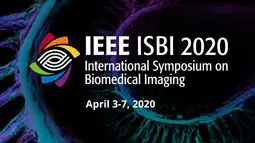Artificial Intelligence and Computational Pathology: Implications for Precision Medicine
Anant Madabhushi
-
Members: FreeSPS
IEEE Members: $11.00
Non-members: $15.00Length: 29:54
03 Apr 2020
With the advent of digital pathology, there is an opportunity to develop computerized image analysis methods to not just detect and diagnose disease from histopathology tissue sections, but to also attempt to predict risk of recurrence, predict disease aggressiveness and long term survival. At the Center for Computational Imaging and Personalized Diagnostics, our team has been developing a suite of image processing and computer vision tools, specifically designed to predict disease progression and response to therapy via the extraction and analysis of image-based ?histological biomarkers? derived from digitized tissue biopsy specimens. These tools would serve as an attractive alternative to molecular based assays, which attempt to perform the same predictions. The fundamental hypotheses underlying our work are that: 1) the genomic expressions detected by molecular assays manifest as unique phenotypic alterations (i.e. histological biomarkers) visible in the tissue; 2) these histological biomarkers contain information necessary to predict disease progression and response to therapy; and 3) sophisticated computer vision algorithms are integral to the successful identification and extraction of these biomarkers. We have developed and applied these prognostic tools in the context of several different disease domains including ER+ breast cancer, prostate cancer, Her2+ breast cancer, ovarian cancer, and more recently medulloblastomas. For the purposes of this talk I will focus on our work in breast, prostate, rectal, oropharyngeal, and lung cancer.



